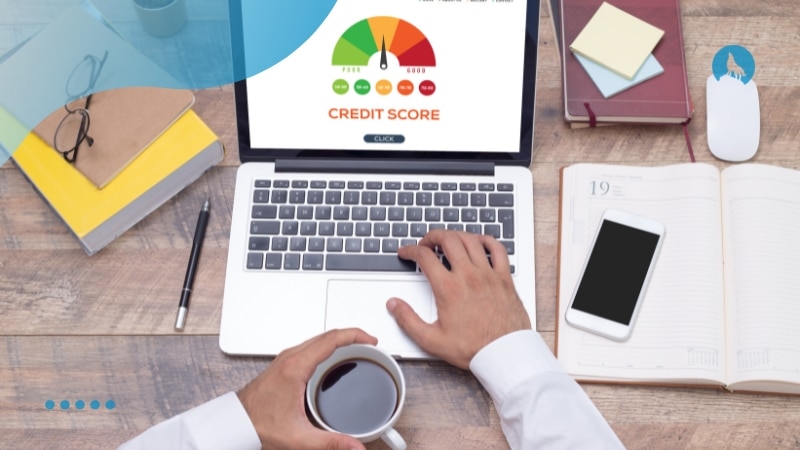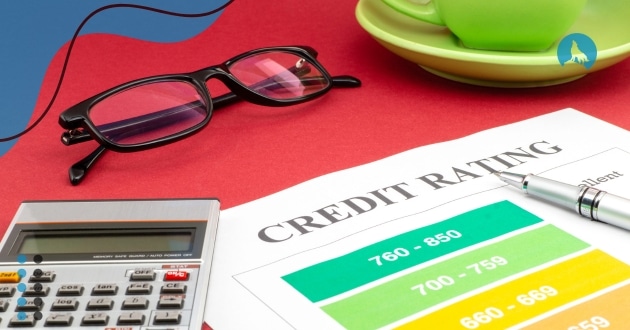Bad credit score solutions are essential for individuals who find themselves facing financial difficulties due to poor credit ratings. A bad credit score can feel like an insurmountable hurdle, blocking you from essential financial opportunities such as getting approved for loans, renting an apartment, or even securing a job.
It’s a situation that many people find themselves in, often due to past financial mismanagement, unforeseen life circumstances, or simply a lack of financial education. However, the reality is that there are effective ways to recover from a bad credit score, and these solutions can lead to a fresh financial start.
Understanding what a bad credit score means is the first step in addressing the issue. In many credit scoring systems, a score below 600 is often categorized as poor.
While each credit bureau and model may have slightly different criteria, the FICO score, which is commonly used in the United States, ranges from 300 to 850. A score under 580 is considered poor, and individuals within this range often face difficulties when applying for loans or credit cards.
Unfortunately, without a proactive strategy, these individuals may continue to experience financial setbacks that can significantly affect their long-term financial stability.
What Is a Bad Credit Score?
A bad credit score typically refers to a score below 580 on the FICO scale, indicating a higher risk for lenders. This score is a reflection of an individual’s financial history, including factors like missed payments, high credit utilization, and defaults. People with bad credit often face challenges in securing loans, getting favorable interest rates, or even being approved for credit cards.
To fully understand your financial standing, it’s important to check your credit score for free regularly. Many online tools and services offer free access to your credit report, helping you track your progress and identify areas for improvement.
Knowing your credit score provides insight into whether your financial habits are impacting your score and allows you to take necessary steps toward improvement.
Improving a bad credit score requires consistent effort over time. Strategies like making timely payments, paying down debt, and reducing credit utilization can all help boost your score. While the process takes time, with dedication and the right approach, it is entirely possible to overcome a bad credit score and regain financial stability.
Why Do You Have a Bad Credit Score?
Before finding the right bad credit score solutions, it’s important to understand the reasons behind your low score. There are several common causes:
- Late Payments: Missing payments on your credit cards, loans, or bills can significantly impact your credit score.
- High Credit Utilization: Maxing out your credit cards or using a high percentage of your available credit can lower your score.
- Defaulting on Loans: Defaulting on a loan or declaring bankruptcy can severely damage your credit score.
- Limited Credit History: If you have little or no credit history, it can be difficult to get a good score.
- Too Many Hard Inquiries: Applying for multiple credit cards or loans in a short time can result in hard inquiries, which may lower your score.
Identifying the root cause of your bad credit score is crucial for applying the correct solutions.

Long-Term Strategies for Maintaining a Healthy Credit Score
Once you’ve made progress in improving your credit score, it’s essential to maintain that positive momentum. A healthy credit score can open doors to better financial opportunities, but sustaining it requires ongoing effort and good financial habits. Fortunately, there are several long-term strategies that can help you keep your credit score in optimal shape.
First and foremost, it’s crucial to continue monitoring your credit regularly. Keeping an eye on your credit report ensures that any discrepancies or errors are caught early. Many credit card issuers and financial institutions offer free credit score tracking as part of their service, which can be a valuable tool in staying informed.
By routinely checking your credit, you can spot any unexpected changes and take swift action to address them before they negatively impact your score. Moreover, monitoring your credit helps you stay on top of any potential fraudulent activity that may arise.
In addition to monitoring your credit, it’s important to use credit responsibly. One of the most effective long-term strategies for maintaining a healthy credit score is to avoid taking on excessive debt. It’s advisable to aim for using no more than 30% of your available credit, as high credit utilization can significantly affect your score.
It’s also wise to refrain from opening too many new credit accounts within a short time frame, as each credit inquiry can slightly reduce your score. Therefore, only apply for new credit when necessary, and be strategic about the types of credit you use.
Lastly, keeping debt low and payments on time are essential for maintaining your credit score. Timely payments are one of the most influential factors in determining your score, so continue to prioritize making payments by their due date. This includes all bills, such as credit cards, loans, and even utilities.
Conclusion
In conclusion, a bad credit score doesn’t have to be a permanent setback. With consistent effort, the right strategies, and a bit of patience, anyone can improve their credit score and regain financial stability.
The journey to a better credit score involves understanding what contributes to your current rating, taking actionable steps to correct any issues, and adopting healthy financial habits that will ensure long-term success.
While it may take time, the results will be worth it as a good credit score opens up more opportunities, such as lower interest rates, better loan terms, and improved access to credit.
One of the most crucial steps you can take is to check your credit score for free regularly, ensuring that you are aware of your financial standing at all times. By disputing inaccuracies, making timely payments, and reducing your debt, you can significantly improve your score.
Additionally, using tools like credit counseling services or secured credit cards can provide extra support during your recovery process. Ultimately, maintaining a healthy credit score requires ongoing commitment and responsible credit use.
By continuing to monitor your credit, pay your bills on time, and avoid overextending your finances, you’ll be able to keep your score high for years to come. For more detailed information on how to check and improve your credit score, visit the official Federal Trade Commission website, which provides valuable resources and tips on how to monitor your credit report for free and protect your financial health.



